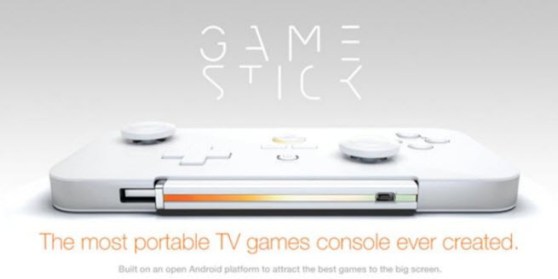PlayJam, which recently drew a lot of attention on Kickstarter for successfully raising money for its tiny GameStick portable console, has partnered with a major Korean and Japanese hardware manufacturer to introduce its TV games in the Asian market.
Under the white-label deal, PlayJam will provide its TV games platform technology to power Avantis’ new console for Korean and Japanese markets. The partnership is PlayJam’s first licensing deal as a part of a wider strategy to form the backbone of multiple devices beyond its GameStick device, which plugs into a TV and lets you play casual games on it.

In an interview with GamesBeat at the Casual Connect Europe game conference, PlayJam chief executive Jasper Smith (pictured) said that the TV games ecosystem is rapidly evolving, with more TV and set-top box makers preparing to enter the market. PlayJam’s Games Platform is an open environment that gives developers a set of tools to enhance, promote, monetize, and distribute games over connected TVs. It has features like worldwide billing, leaderboards, tournaments, ads, and analytics.
Avantis is licensing PlayJam’s network, not a hardware device, so that it can deliver games on the TV via Avantis hardware.
“We offer a game network that can plug into any device,” Smith said. “In Asia, we can go into the market with something that is disruptive.”
K.J. Yoo, the president of Avantis, said the alliance with PlayJam allows it to deliver games on a TV at a fraction of the cost that it would otherwise require to do support and network management.
PlayJam also recently partnered with controller maker Green Throttle Games, which also wants to bring Android games to the TV.
PlayJam’s backers are GameStop, Adobe, Endeavour Ventures, London Venture Partners, and others. PlayJam games are accessible on 150 TVs from Samsung, LG, Panasonic, and others. That means PlayJam’s games are already accessible to more than 60 million homes.
PlayJam also raised more than $600,000 on Kickstarter to manufacture its GameStick device. The GameStick device makes sense in part because the quality of the game experience on TVs is hampered by the input device and the availability of memory.
GameStick plugs into a TV’s HDMI slot and comes with a Bluetooth-based game controller (pictured at top). You can snap the USB stick into the controller when you want to take it on the road. You could easily play this on a hotel room TV while traveling. PlayJam’s executives say they will sell the GameStick for $79. The project was born from the belief that consoles and games are still too expensive and aren’t open enough when it comes to content options. As such, it is a rival to the Ouya console scheduled for this June.
That project, featuring a three-inch by one-inch hardware device, drew intense support during the Kickstarter campaign, which helped raised the profile of PlayJam and helped its cause in promoting its game network. Multiple major retailers also stepped forward to sell the GameStick.
“We got great PR and marketing out of that campaign,” Smith said. “Getting all of the retailers fired up to support us is not something we could have predicted.”
PlayJam has its own publishing platform on Android for Smart TV games, and it has a network of hundreds of developers. PlayJam has 65 employees and has been around for six years.
“Our view is Android is penetrating into the TV, and it’s starting from the bottom up, from developers,” he said. “Our strategy is to make sure those things meet and we can be in a dominant position.”
VentureBeat's mission is to be a digital town square for technical decision-makers to gain knowledge about transformative enterprise technology and transact. Learn More

